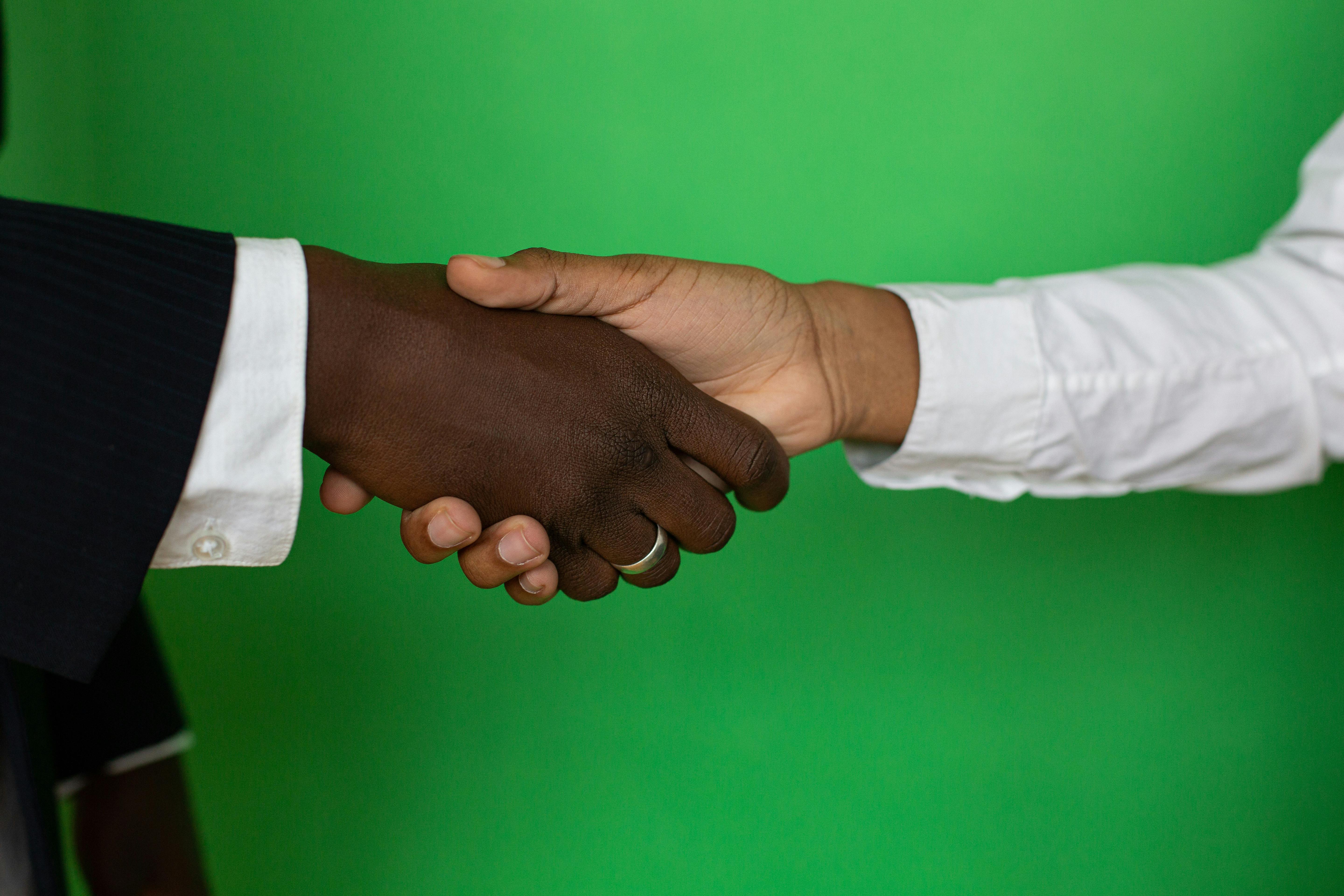Rapport in Interviews
Rapport in Interviews
Rapport building is the process of connecting with a person and establishing confidence. It provides a safe and comfortable space to communicate. Strong communication and connection with the participant are essential for information collection when conducting interviews. In this article, we will cover the basics of rapport building, ethical considerations, and provide advice on how to build rapport with participants in qualitative research.

Introduction
The word rapport originates from the French term “rapporteur” which means “to bring back” or “to relate.” It stems from the Latin root re- (again) and portare (to carry). Initially, the term described the act of returning or reporting something, but over time, it evolved to refer to a relationship characterized by mutual understanding and harmony. Today, “rapport” is widely used to describe positive interactions where trust and attentiveness foster a productive exchange between individuals, particularly in contexts like interviews.
Rapport building in interviews involves creating a relationship based on mutual respect, attentiveness, and trust. It goes beyond asking questions and collecting responses—it requires showing genuine interest and engaging in meaningful conversation. Body language, such as maintaining eye contact, mirroring body language, and using nonverbal cues, plays an essential role in establishing rapport. These nonverbal correlates communicate attentiveness and help to build a positive connection, making the interviewee feel more comfortable and valued.
In addition to nonverbal communication, verbal techniques like active listening, positive reinforcement, and relevant follow-up questions are key to rapport building. Listening actively means not only hearing what the interviewee is saying but also acknowledging their responses through gestures or brief verbal affirmations. Engaging the interviewee in a way that shows you are fully present and interested in their answers builds trust and encourages a more open conversation.
Why is rapport important?
Rapport is an essential element of the interview process because it directly influences the quality and depth of the information collected. Participants may feel distant, guarded, or unwilling to share their true thoughts or experiences without rapport. This can lead to incomplete or superficial answers, which limits the effectiveness of the interview and hinders the research findings.
Building rapport varies depending on the method of the interview. In focus groups, rapport building doesn’t play as important a role as in individual face-to-face interviews, but it is still important to build confidence and respect for participants.
When participants connect with the interviewer, they are more likely to express their true feelings and opinions. This openness leads to richer data and a deeper understanding of the subject matter. Rapport helps to establish trust between the interviewer and the participant. Trust is crucial in ensuring that participants feel comfortable sharing sensitive or personal information, which can be particularly important in research settings involving emotional or controversial topics.
Good rapport facilitates smoother communication. Participants are more likely to elaborate on their responses and engage in meaningful dialogue when they feel that the interviewer is genuinely interested and paying attention to their answers. Many participants may feel nervous or uncertain during interviews, especially if the topics are unfamiliar or personal. Rapport building helps to alleviate these anxieties by creating a relaxed and supportive environment that stimulates engaging conversation.
In short, rapport is crucial for gathering detailed and authentic data. It transforms the interview from a mere question-and-answer session into a more natural and productive conversation, allowing for better insights and understanding.
Rapport can positively and negatively influence data quality (Horsfall et al., 2021). High levels of rapport reduce missing responses, as respondents are more motivated to complete the interview. However, it may lead to socially desirable answers, especially on sensitive topics, as respondents may avoid discomfort or offending the interviewer. In the study by Horsfall et al., researchers found that rapport decreased missing responses by 20% but encouraged socially desirable responses in questions about income or legal matters. However, they also found that rapport did not significantly affect consistency in self-reported alcohol consumption compared to face-to-face interviews, suggesting that memory might play a greater role in consistency. Although rapport generally improves cooperation, it complicates the accuracy of responses in sensitive contexts.

Key elements for building rapport
Human communication is complex and rapport is a diverse equation of verbal and nonverbal communication and genuine interest from everyone involved. While there is no specific formula for building rapport during an interview, there are some suggestions that researchers can follow to build rapport:
Active listening
Active listening is one of the most effective ways to build rapport. This means giving your full attention to the participant, responding appropriately, and acknowledging their answers with verbal cues. Active listening shows that you are engaged and interested in what the participant is saying, which encourages them to open up more. Just recording the participant and not engaging in the conversation may reduce the quality of the information shared.
Maintain eye contact
Eye contact is a powerful tactic for establishing connection and trust. By maintaining eye contact, you signal to the participant that you are present and focused on them. However, it is important to strike a balance—too much eye contact can be intimidating, while too little can make you seem disinterested.
Use positive reinforcement
Encouraging participants with positive reinforcement, such as nodding or offering brief affirmations, helps to create a supportive and respectful environment. This shows that you value their input and are interested in their perspectives.
Ask open-ended questions
Open-ended questions are essential for encouraging participants to share detailed and thoughtful responses. These types of questions invite participants to reflect on their experiences and opinions, providing richer data. For example, instead of asking “Did you like the event?” you might ask “What were your thoughts on the event?”
Mirroring body language
Subtle mirroring of the participant’s body language can help to establish rapport by creating a sense of synchrony and mutual attentiveness. For example, if the participant leans forward during the conversation, you might do the same. However, this technique should be used naturally and not forced, as participants may pick up on disingenuous behaviour.
Show genuine interest
Building rapport requires that the interviewer demonstrate a genuine interest in the participant’s responses. This can be done through thoughtful follow-up questions, asking for clarification on certain points, or showing enthusiasm for the topics being discussed. When participants feel that the interviewer is genuinely interested, they are more likely to engage fully in the conversation.
Be respectful and empathetic
Respect and empathy are key components of rapport building. Showing respect for the participant’s opinions and experiences, even if they differ from your own, helps to create a safe and supportive environment. Empathy, or the ability to understand and share the feelings of others, allows the interviewer to connect on a deeper level with the participant.
Comfortable atmosphere
During the interview, showing interest is pivotal along with creating a comfortable environment that provides a safe space for the participants to share information. When it comes to face-to face interviews, it is ideal to find a location with minimal distractions and interruptions, provide water if needed, a comfortable seat, and a location that is convenient.


